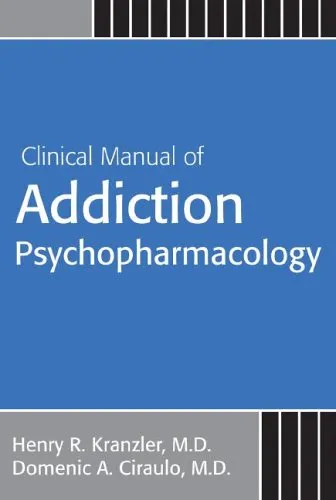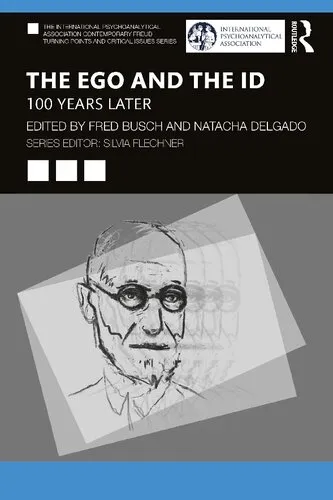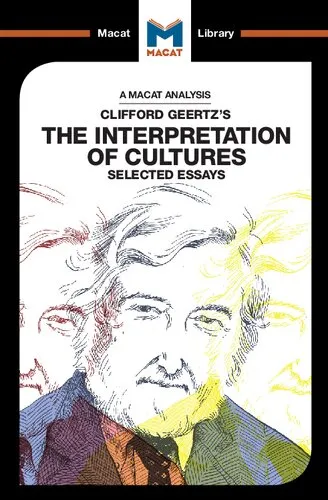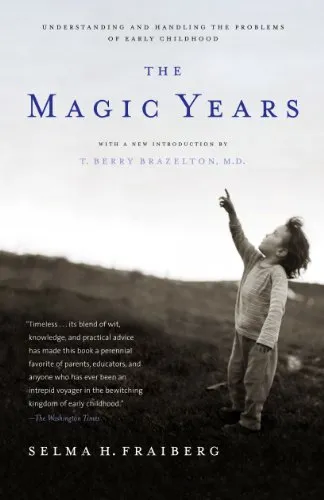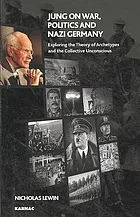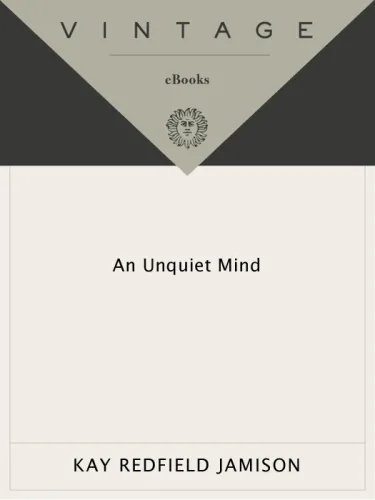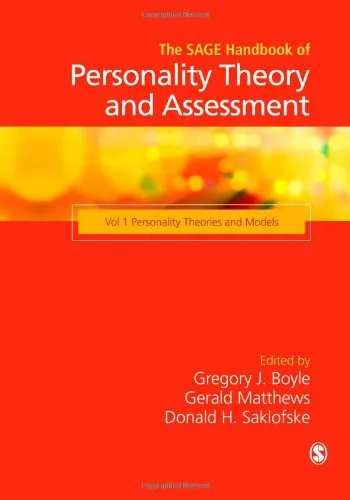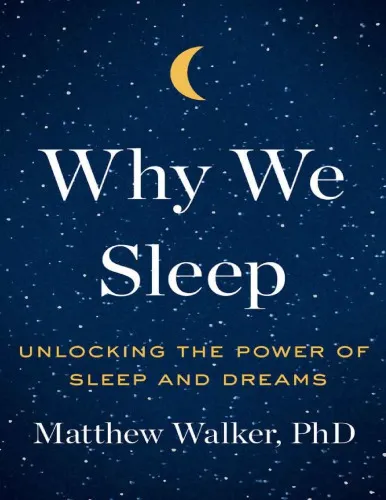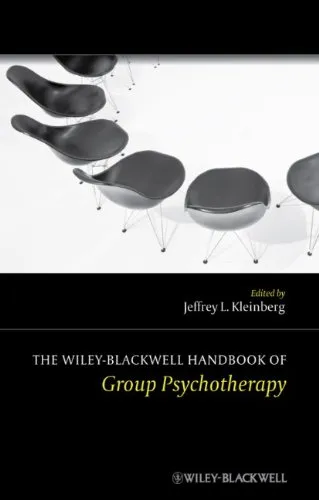Clinical Manual of Addiction Psychopharmacology
4.5
بر اساس نظر کاربران

شما میتونید سوالاتتون در باره کتاب رو از هوش مصنوعیش بعد از ورود بپرسید
هر دانلود یا پرسش از هوش مصنوعی 2 امتیاز لازم دارد، برای بدست آوردن امتیاز رایگان، به صفحه ی راهنمای امتیازات سر بزنید و یک سری کار ارزشمند انجام بدینکتاب های مرتبط:
معرفی جامع کتاب "Clinical Manual of Addiction Psychopharmacology"
کتاب Clinical Manual of Addiction Psychopharmacology یکی از منابع جامع و معتبر در حوزه روانپزشکی اعتیاد است که توسط نویسندگان برجستهای نوشته شده و به طور خاص بر اختلالات مصرف مواد و درمانهای دارویی مرتبط با آن تمرکز دارد. هدف این کتاب فراهم آوردن اطلاعات کاربردی، علمی و بهروز برای متخصصین سلامت روان، پزشکان و پژوهشگران میباشد.
با گستردگی روزافزون مصرف مواد مخدر و پیشرفتهای مداوم در زمینه درمانهای رواندارویی، کتاب حاضر به یکی از منابع اساسی برای درک اصول پایهای و شیوههای پیشرفته رواندارودرمانی تبدیل شده است. در این معرفی، به طور جامع با خلاصه کتاب، نکات کلیدی، نقلقولهای معروف و اهمیت این اثر آشنا خواهید شد.
خلاصهای از کتاب
کتاب "Clinical Manual of Addiction Psychopharmacology" در چندین فصل تخصصی به بررسی انواع مواد اعتیادآور، مکانیسمهای اثر آنها بر سیستم عصبی مرکزی (CNS)، و درمانهای دارویی مؤثر میپردازد. این کتاب به دو بخش اصلی تقسیم میشود: در بخش اول، اصول پایهای Pharmacoepidemiology و Neurobiology اعتیاد مورد بحث قرار گرفتهاند، که خواننده را با روندهای بیولوژیکی مرتبط با وابستگی و اعتیاد آشنا میکند. در بخش دوم، درمانهای دارویی شامل Agonists، Antagonists و سایر ابزارهای Farmacological به تفصیل تحلیل شدهاند.
این کتاب علاوه بر توضیحات علمی، به موارد عملی و بالینی نیز پرداخته است. نویسندگان مثالهای متعددی از موارد واقعی ارائه میدهند تا بتوانند دانش نظری را به استفاده بالینی پیوند دهند. از دیگر ویژگیهای کلیدی این کتاب، بررسی مواد مختلف نظیر Alcohol، Opioids، Stimulants، و Cannabis است و درمانهای خاص مربوط به هر دسته از این مواد به شکل متمرکز و شفاف توضیح داده شدهاند.
نکات کلیدی کتاب
- ارائه یک مدل جامع برای فهم عوامل بیولوژیکی، روانی و اجتماعی اعتیاد.
- تمرکز ویژه بر مدیریت Pharmocotherapies برای اختلالات مصرف مواد.
- استفاده از دستورالعملهای درمانی مبتنی بر شواهد (Evidence-based).
- تشریح تأثیرات دارویی هر ماده خاص به همراه توضیحات کاربردی درباره Dosing و Monitoring.
- بررسی جنبههای اخلاقی و قانونی در درمان اعتیاد.
نقلقولهای معروف از کتاب
"Addiction is not merely a lack of willpower, but a complex interplay of biological, psychological, and social factors requiring a multidisciplinary treatment approach."
"Understanding neurobiology is the cornerstone of effective pharmacological interventions in addiction."
چرا این کتاب اهمیت دارد؟
با توجه به پیچیدگیهای روزافزون اعتیاد و رشد ناگهانی مواد مخدر جدید، دسترسی به منابع علمی، دقیق و مبتنی بر شواهد ضروری است. کتاب "Clinical Manual of Addiction Psychopharmacology" نه تنها به عنوان یک راهنمای بالینی بلکه به عنوان یک مرجع علمی قابل اعتماد، به درک بهتر متخصصان از مفاهیم پیچیده اعتیاد و درمان کمک میکند.
همچنین این کتاب به دلیل ساختار منظم و قابل درکش، برای متخصصین بالینی، دانشجویان پزشکی و روانشناسان یکی از منابع ضروری محسوب میشود. با بهرهگیری از این منبع ارزشمند، خوانندگان توانمند میشوند تا رویکردی علمی و عملی برای درمان بیماران مبتلا به اختلالات مصرف مواد اتخاذ کنند. بنابراین، این اثر نقشی کلیدی در ارتقای سطح درمان و پژوهش در حوزه اعتیاد در سطح جهانی ایفا میکند.
Introduction to 'Clinical Manual of Addiction Psychopharmacology'
The field of addiction psychopharmacology is at the intersection of neuroscience, psychiatry, and substance use treatment, offering crucial insights into managing the complex interplay of mental health disorders and addiction. The book, Clinical Manual of Addiction Psychopharmacology, is an authoritative guide that equips clinicians, researchers, and healthcare professionals with indispensable tools to better understand and manage substance use disorders through evidence-based psychopharmacological interventions. \tthis book has been written carefully considering contemporary issues.
Summary of the Book
This comprehensive manual provides a detailed examination of the pharmacological aspects of addiction, exploring the latest advancements in medications used to treat substance use disorders (SUDs), while also presenting a thorough overview of the neuroscientific mechanisms underlying addiction. The book combines clinical applicability with rigorous research, offering a nuanced understanding of how pharmacotherapy can be integrated into addiction treatment models. Throughout its chapters, the book delves deeply into key topics, such as the neurobiological basis of addiction, pharmacokinetics and pharmacodynamics of psychotropic medications, and modern approaches to detoxification and long-term recovery maintenance. It encompasses the pharmacological management of various substances, including alcohol, opioids, nicotine, stimulants, and sedatives. The authors also emphasize co-occurring psychiatric disorders and their treatment alongside addiction, ensuring that readers understand the complexities of dual-diagnosis cases. By combining theoretical content with practical recommendations, the manual helps bridge the gap between research and clinical practice, making it an invaluable resource for both seasoned addiction specialists and those new to the field.
Key Takeaways
- Scientific Foundation: Explore the neurobiology of addiction to better understand its root causes and the pharmacological targets for treatment.
- Comprehensive Drug Insights: Detailed discussions of FDA-approved medications, off-label uses, and experimental drugs in treating addiction.
- Dual Diagnosis: Effective strategies for managing co-occurring psychiatric conditions, such as depression, anxiety, and psychosis, in individuals with SUDs.
- Patient-Centered Care: Practical tips for personalizing addiction treatments and achieving better patient outcomes.
- Simplified for Practice: Clear guidelines for dosing, side effect management, and addressing medication adherence challenges.
Famous Quotes from the Book
"Effective treatment of substance use disorders begins with understanding that addiction is a chronic, relapsing brain disease that requires as much scientific rigor and compassion as any other medical illness."
"Pharmacotherapy is not a cure; it is an indispensable tool in reducing suffering, preventing relapse, and supporting the journey to recovery."
Why This Book Matters
Addiction continues to be one of the most pressing public health concerns globally, impacting individuals, families, and communities. The importance of understanding and addressing substance use disorders is underscored by ongoing trends in the opioid epidemic, the rise of synthetic drugs, and the aftermath of the COVID-19 pandemic on mental health and addiction rates. The Clinical Manual of Addiction Psychopharmacology is not just another academic resource—it is a clinical compass for navigating the complexities of addiction treatment. By offering strategies grounded in the latest empirical research, it provides practitioners with the confidence needed to tackle challenging cases, make informed pharmacological decisions, and, ultimately, change lives. The manual places a strong emphasis on integrated care models, reminding readers that addiction recovery is not isolated from the broader context of mental health and wellness. It highlights the importance of working collaboratively within multidisciplinary teams, employing pharmacological tools in conjunction with psychosocial interventions to ensure patient-centered outcomes. Whether you're a psychiatrist, primary care physician, psychologist, or social worker, this book equips you with the knowledge and tools necessary to bring hope and healing to those grappling with addiction. It underscores the fact that recovery is a journey, and every clinician plays a vital role in supporting patients along that path.
دانلود رایگان مستقیم
شما میتونید سوالاتتون در باره کتاب رو از هوش مصنوعیش بعد از ورود بپرسید
دسترسی به کتابها از طریق پلتفرمهای قانونی و کتابخانههای عمومی نه تنها از حقوق نویسندگان و ناشران حمایت میکند، بلکه به پایداری فرهنگ کتابخوانی نیز کمک میرساند. پیش از دانلود، لحظهای به بررسی این گزینهها فکر کنید.
این کتاب رو در پلتفرم های دیگه ببینید
WorldCat به شما کمک میکنه تا کتاب ها رو در کتابخانه های سراسر دنیا پیدا کنید
امتیازها، نظرات تخصصی و صحبت ها درباره کتاب را در Goodreads ببینید
کتابهای کمیاب یا دست دوم را در AbeBooks پیدا کنید و بخرید
